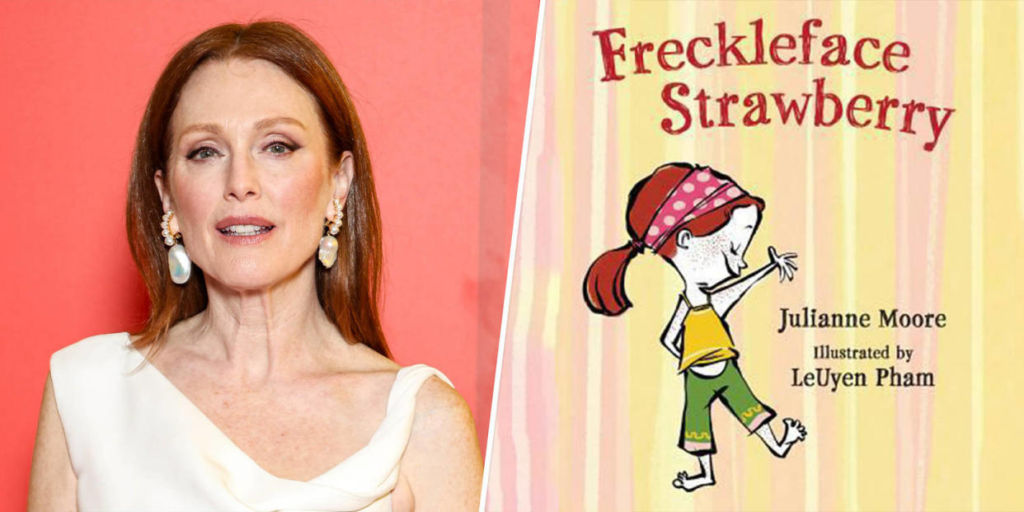
Actress expresses shock over book ban
A children’s book authored by Hollywood star Julianne Moore has been pulled from schools serving U.S. military families, sparking widespread debate and renewed interest in the publication. Following the controversy, the book is now being reprinted due to surging demand.
‘Freckleface Strawberry’ removed from shelves
Julianne Moore, an Oscar-winning actress, took to Instagram on February 16 to voice her “great shock” after learning that her book, Freckleface Strawberry, had been removed from schools run by the U.S. Department of Defense. Published in 2007, the book tells the story of a young girl learning to embrace her freckles and red hair.
The decision to remove the book was linked to a Pentagon directive, which mandated a “compliance review” of books across approximately 160 military schools worldwide. The review aimed to identify materials related to “gender ideology” and “discriminatory equity ideology,” aligning with the Trump administration’s broader efforts to reshape educational policies in public institutions.
On February 20, Julianne Moore provided an update on social media, announcing that Freckleface Strawberry was being reprinted due to overwhelming public support and a flood of orders.
“Whenever I read my books to kids, I always ask them to guess who the real Freckleface Strawberry is, and then I roll up my sleeves and show them my freckles,” Julianne Moore wrote. “I want them to understand that even adults remember feeling different as kids.” She concluded her post by thanking her supporters.
Trump administration responds to criticism
The Trump administration has dismissed claims of censorship, calling reports of book bans a “hoax.” Supporters of the policy argue that it protects children from what they view as political indoctrination, while critics say it is an attack on free expression and an attempt to stifle discussions on race, gender, and diversity in schools.
Trump’s recent executive orders, including Defending Women from Gender Ideology Extremism and Ending Radical Indoctrination in K-12 Schooling, have introduced tighter restrictions on educational materials. The issue of book bans has gained momentum in recent years, with Republican lawmakers reportedly removing over 10,000 books from public schools during the 2023-2024 academic year, particularly those addressing race, gender identity, and historical issues, according to PEN America, an organization advocating for free expression in literature.
Florida Governor Ron DeSantis has defended such measures, arguing that removing books from school libraries does not constitute censorship, as they remain available for purchase. However, critics argue that restricting access to certain books in public education is a clear suppression of ideas.
Publishers challenge book bans in court
Major publishing houses—including Penguin Random House, Hachette, HarperCollins, Macmillan, and Simon & Schuster—have filed a lawsuit against book bans in U.S. schools and libraries.
The lawsuit specifically challenges Idaho’s House Bill 710, which went into effect on July 1, 2024. The law mandates that libraries relocate “harmful” books to adult-only sections and prohibits minors from accessing books containing “sexual content.”
Some of the banned books include The Handmaid’s Tale by Margaret Atwood, I Know Why the Caged Bird Sings by Maya Angelou, Slaughterhouse-Five by Kurt Vonnegut, and The Bluest Eye by Toni Morrison.
The legal battle over book bans continues to intensify, raising significant questions about free speech, censorship, and the future of educational content in the United States.





